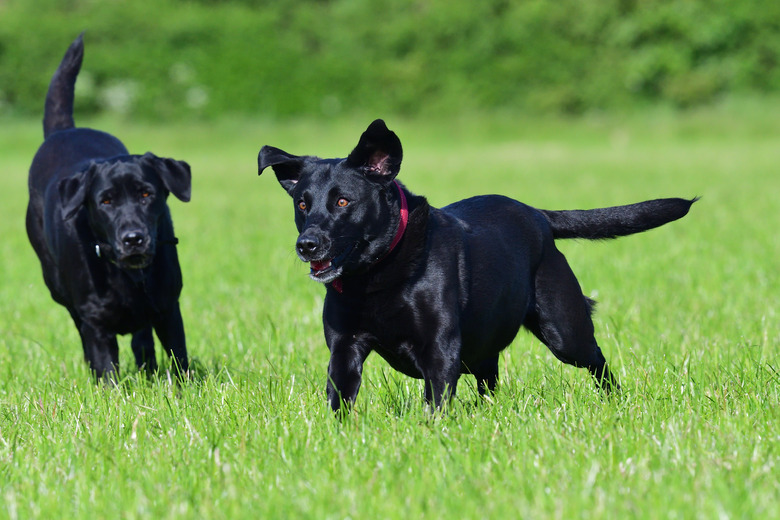How Smart Are Black Labradors?
Determining the intelligence of dogs is not a simple subject, as there aren't any clear, objective tests to measure canine intelligence. In addition, each of the dog breed personalities may demonstrate intelligence in different ways, so understanding your dog's natural instincts is key to recognizing and accessing his intelligence. Labrador retrievers are often found on lists of the smartest dog breeds.
Black Labrador dog breed personalities
Black Labrador dog breed personalities
Labs are known as active dogs with friendly and outgoing natures. These waterdogs were originally bred to be duck retrievers and served as companions to fishermen. They are still a popular choice for hunters due to their soft mouths and good temperaments. This smart breed also works well as service and guide dogs, and their strong sense of smell makes them excellent search and rescue dogs. Labs are not just working dogs, they are also one of the most popular breeds for family dogs.
Labs are energetic and active and enjoy swimming and retrieving. They are easygoing dogs but may become hyperactive and destructive if they don't get enough exercise.
Labrador intelligence level
Labrador intelligence level
Some of the factors that are considered when measuring intelligence include a dog's ability to learn commands, instinctive intelligence, and ability to solve problems. Despite the difficulty in measuring a dog's intelligence, labrador retrievers are considered one of the smartest dog breeds. Stanley Coren, a canine researcher, ranks labs as the 7th most intelligent breed based on his surveys and consultation with more than 200 obedience judges.
Labrador retrievers come in three coat colors: black, chocolate, and yellow. Many people commonly attribute different characteristics to the different colors of labradors, but there is little scientific evidence to back this up or show that black labs are more or less intelligent than yellow or chocolate labs.
A study of Australian labrador retrievers published in the November 2019 edition of Canine Medicine and Genetics showed that two traits that may be associated with coat color include aggression toward familiar dogs and trainability. Yellow labs were more likely to show familiar dog aggression than black or chocolate labs. Decreases in trainability were not linked to visible coat color, but rather, to the presence of the recessive brown allele in their genes.
Training and socialization
Labradors are naturally intelligent, and they respond well to obedience training. They are eager to please and catch on to new commands quickly, especially when given plenty of positive reinforcement. Many labs are prone to weight gain, so use moderation when giving treats and adjust the size of your dog's meals to accommodate the extra calories from treats. Make sure your dog is getting enough exercise so that he is both physically and mentally healthy and can focus on the training. Playing fetch, swimming in a pond, or agility training in your backyard are great ways for your dog to burn off excess energy while having fun.
They are also extremely adaptable and learn and repeat human behaviors. This type of intelligence contributes to a black lab's standing as one of the smartest dog breeds, but it also poses a potential challenge for owners. You or your family may inadvertently be teaching your dog undesirable behaviors by not reinforcing limits and boundaries.
Black labs are a strong, energetic breed that can weigh up to 80 pounds. Socializing a black lab puppy early when the lab is between 7 weeks and 4 months old is important to have a well-mannered adult dog that you can feel good taking to the park and other social settings. As smart as these dogs are, teaching good behavior and preventing bad habits from developing is much easier when you start puppy training early.


